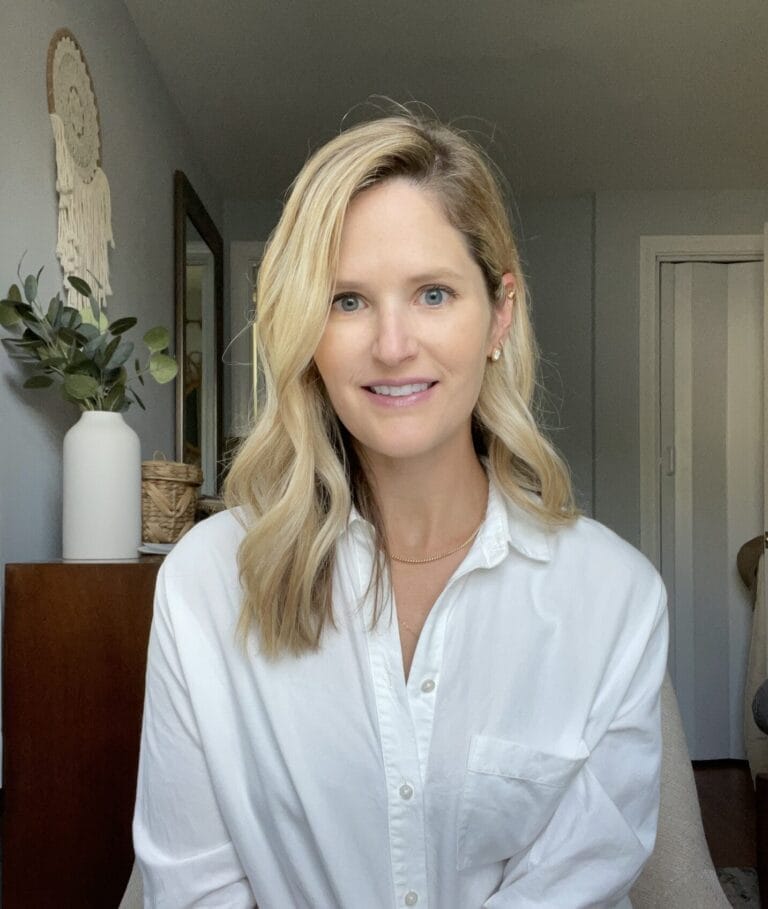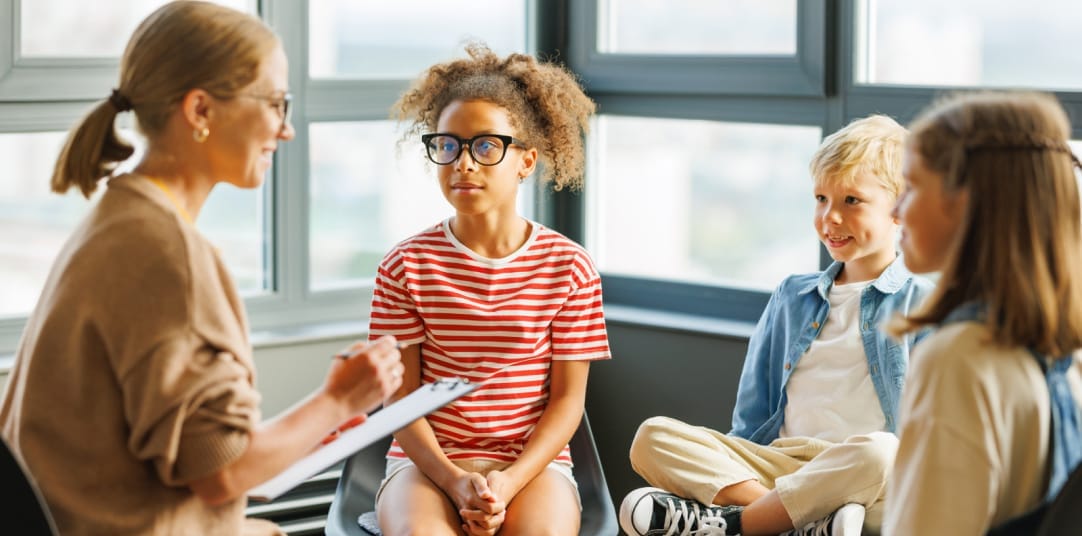Robin Corder, Ed.S., NCSP, recently received the “2020 School Psychologist of the Year Award” from the Idaho State Psychologist Association (ISPA), a member of the National Association of School Psychologists (NASP). In her nomination, Jill Daniels, director of special education for the Oneida School District, wrote:
“Robin Corder has been a school psychologist for our brick-and-mortar school and for our ever-growing virtual school for the past two years. She works tirelessly to complete assessments throughout the state of Idaho. She is reliable in her information and is able to explain it in a way that is insightful and understandable to all members of the team. She is able to train our teachers on the evaluation process and share documents that help guide them.”
Recently we sat down with Corder to discuss the experience of the past year and what the award means to her and the field more broadly. Read on for more.
Congratulations on the award. What does it mean to you? To the field?
The Idaho State Psychologist Association (ISPA) presents this award every year. They put out a call to all school psychologists, asking them to make nominations for a “school psychologist who has gone above and beyond the call of duty.” Typically there are a lot of psychologists who nominate their peers. This time it was special that a director of special education nominated her own school psychologist. It is a big deal for us as a group to know that we are valued and recognized by our supervisors, in addition to having the support of our colleagues. Oneida School District is a customer of PresenceLearning, and I was a provider during their regular school year, both in their in-person and online school, and then during the shift to fully remote learning due to COVID-19. Through my work with the online Idaho Home Learning Academy (IHLA), I serve a range of children remotely through the entire state. I love being part of PresenceLearning. It allows psychologists like me to stretch our wings and have an impact upon the lives of students well beyond our immediate, geographic area–across the state and even across the U.S., depending upon our levels of expertise.
Describe your work during the past year; what were the highlights?
The bright spot during the past year was in really making a difference in the mental health of my students and in helping my colleagues. I love when I get an email or talk to a school district that recognizes my work and asks for further ideas and suggestions. I was previously a special education teacher and a special education director, and it helps me to have that background in my current role. I am able to go into a team meeting and offer support and bring multiple perspectives. I have found that the special education and general education teachers have really appreciated the psychological assessment that I provide and, in particular, when I explain to them the neurological processing deficits that a student with special needs might experience: how that looks in class and what accommodations they can provide to help those students better access the general education curriculum in the classroom.
“This year in so many ways has been uniquely different. Typically it is other psychologists who nominate their colleagues. What I noted this year is that many of our nominees came from administration, which really speaks to how deeply they value our psychologists.
”
How did you manage the shift to COVID-19? What were some of the challenges?
My work did not change too much as a result of COVID-19, as I was largely working with an online school. One huge benefit though is that I had a lot less cancelations with an evaluation or a session. Families had much less busy schedules and were able to prioritize this work. I had their undivided attention, and that really translated into helping their children.
When COVID-19 hit in the spring of 2020, many schools and districts throughout the country were overwhelmed and had to table a fair amount of this work. They often decided they would take it back up during the fall, when the pandemic had subsided. But of course it did not go away so easily. So now more districts have a backlog and are looking to PresenceLearning to help fill that void. Our online network of clinicians and our platform are in an ideal position to help those districts and provide compensatory services, especially the rural ones during this crisis. I am grateful that more and more districts are experiencing and enjoying the benefits of PresenceLearning firsthand, so that even when COVID-19 is gone they know the advantages of this approach, no matter what.
One advantage PresenceLearning offers, in particular, is the reach and varied skill among our network of psychologists. For each particular student, we can really hone in on the best of the best providers from all over the country. If there is not one in the local area or if that person is not a fit, we can pool from many other resources as an online, national network. We are in a really strong position to provide the highest standard of service to all students, no matter where they come from. This is ideal to support the student’s individual needs. PresenceLearning is really in a position to increase the quality of what school psychologists can offer. When districts have a range of options, that also raises up the quality of work across the board. This approach stands to better the profession of school psychology more broadly.
How do you see psychoeducational services in schools being better served?
I see psychoeducational services and PresenceLearning growing. I think that this growth will not just be a benefit for PresenceLearning, but also for school psychologists themselves. They don’t have to think narrowly about their options. PresenceLearning provides so much flexibility since you don’t have to stick within just one state. We also bring back and share best practices from other states and other psychologists from across the country. For the country as a whole you really get to see the best of the best nationally rather than just locally. Particularly during COVID-19, having this collective intelligence has made us really think even further outside the box and think differently and see, for instance, that what we don’t just have to do evaluations face-to-face. We have options. Providing these services via teletherapy is reliable and solid–and that is just really powerful for clinicians to experience and understand. They want to see that what they are providing renders valid and reliable results–and they are now seeing that directly and powerfully.
Any anecdote to share about a significant breakthrough or realization in the past year?
When I first started as a provider with PresenceLearning, I was offering counseling services online. I wondered what it would be like to establish rapport with my students because that is critical. Would they talk honestly to me? Would they trust me online? But the reality was they did and so much more. What I actually saw, versus in-person sessions, was that students just felt really comfortable opening up to me in the online format. This was huge for kids being willing to disclose their thoughts to me. So many of my kids felt so much more at ease online, talking about their issues and concerns. I felt like I was better able to help them. They didn’t have the concern that I may know their parents and would therefore talk to their parents about them. They didn have to fear running into me at the grocery store or church after telling me their most personal, most vulnerable thoughts. And wow that provides a huge level of comfort for them. My experience tells me that behavioral mental health support has the potential to grow exponentially through a quality online format like PresenceLearning.
“As psychologists, we identify children as eligible for special education services, and sometimes that is all that people know about our work. But we have a comprehensive role that reaches beyond assessment. We are mental health providers and especially during this time, that is critical.
”
Robin Corder, a Nationally Certified School Psychologist (NCSP), is a clinical account manager with PresenceLearning. She received her EdS degree in School Psychology from Idaho State University. Robin has extensive experience serving individuals with disabilities from preschool to transition-aged children. Her expertise includes being an advocate for children and families. She has collaborated with both school staff and families in developing plans that offer educational supports and/or services necessary for students to be successful in school.




